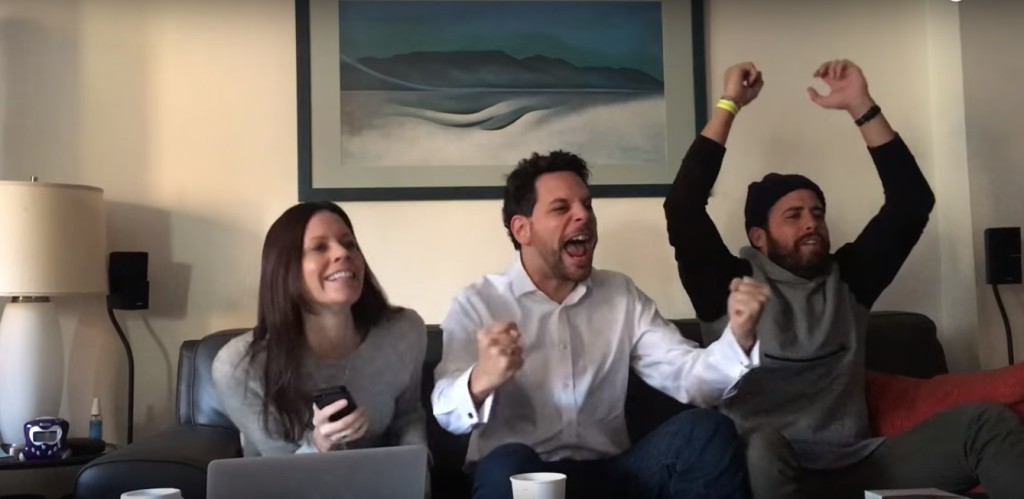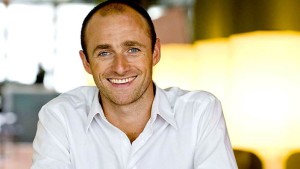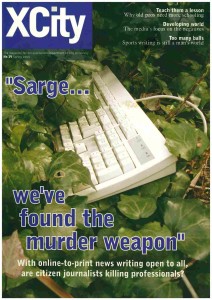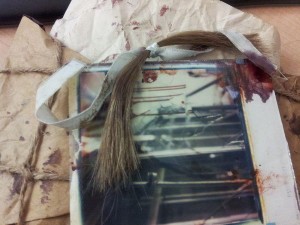An ex-City magazine student missed out on the Oscar for Best Documentary Short at the 88th annual Academy Awards.
Adam Benzine, who completed his PGdip in Magazine Journalism in 2005, wrote, directed and produced the nominated film: Claude Lanzmann: Spectres of the Shoah.
The self-financed film, which took four years to make and is Mr Benzine’s directorial debut, is almost entirely an interview with the French director Claude Lanzmann.

Adam Benzine celebrates his nomination
It aims to provide insight into Lanzmann’s masterpiece, Shoah, widely regarded as one of the most important Holocaust documentaries of all time.
Mr Benzine, who is a debut filmmaker, told XCity: “I’m particularly thrilled for Lanzmann, who never got an Oscar nomination himself. I feel like this goes some way towards rectifying that, in terms of celebrating what a tremendous filmmaker he is.”
The 90-year-old attended the event for the first time, as Mr Benzine’s guest.
Despite garnering critical praise, Mr Benzine’s film failed to beat A Girl in the River: The Price of Forgiveness for the Oscar.
Prior to Sunday’s ceremony, Mr Benzine said: “Being a nominee is a big enough deal because it’s so hard for short films to stand out. It’s one thing to play at a festival to a few hundred people. It’s another thing to be screened at an awards ceremony with 80 million viewers. A handful of short films get that kind of exposure every year.”
After moving to Toronto in 2011 to write for film magazine Real Screen, Mr Benzine saw Shoah and spent the next two years dreaming of making the documentary.
“I thought there must be a film about this man, who led an Hemingway-esque life of travel and adventure. When I found there wasn’t one and he was, at that time, 85, I thought I’ve just got to get a camera in front of him,” said Mr Benzine.
Not having sat for an extended interview since the film’s release in 1985, Lanzmann politely rebuffed Mr Benzine’s initial approaches on the grounds that he was too busy. A letter from the BBC stating an interest in licensing the film, however, swayed Lanzmann and soon Mr Benzine and his team of six began filming at the octogenarian’s Montparnasse apartment.
“Claude can be quite a difficult person and I don’t think my film shies away from that, but his stubbornness is part of what made him able to make Shoah. It needed someone who was able to take a beating, who was able to push back against external pressure, who was persistent, who had a dogged vision on how they wanted to tell this story. I feel huge admiration for him and the work he did,” said Mr Benzine.


















